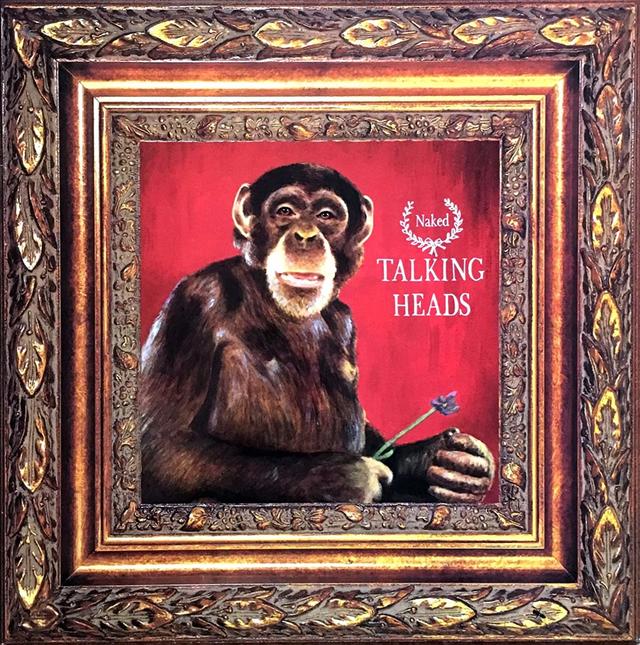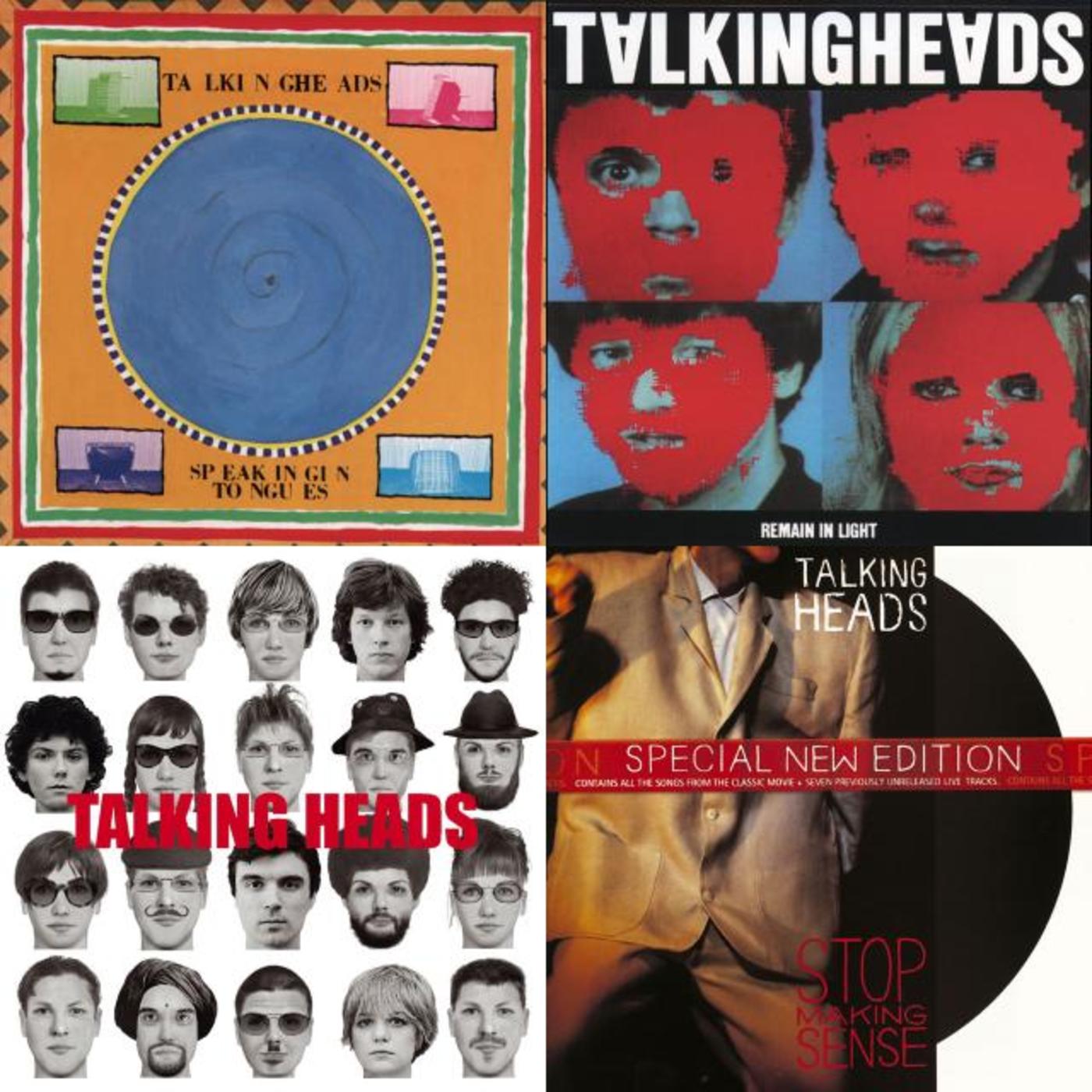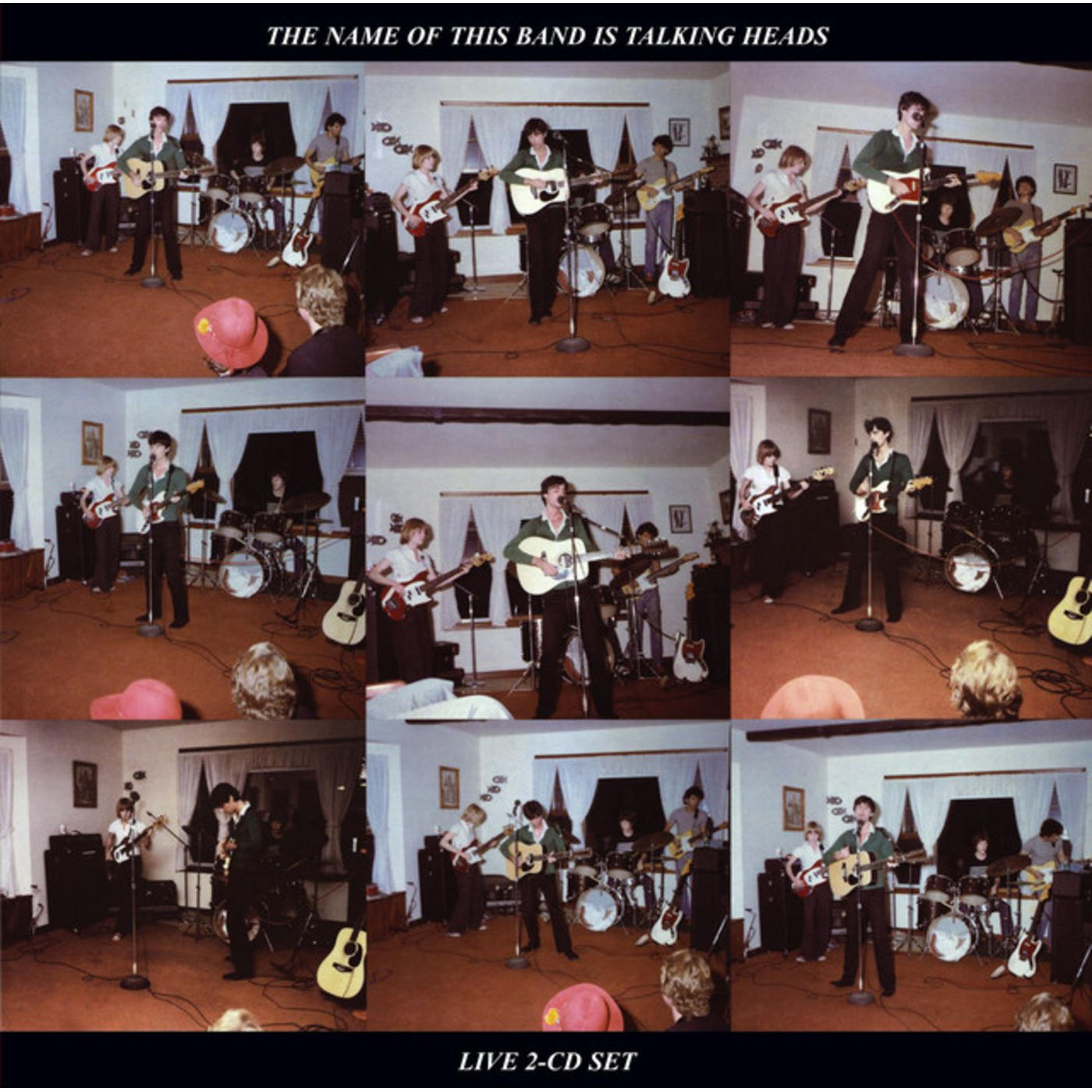Deep Dive: Talking Heads, NAKED

By 1987, Talking Heads were certified rock stars, albeit of the alternative variety. Starting the '80s decade with instant classic Remain in Light (1980), David Byrne, Tina Weymouth, Chris Frantz and Jerry Harrison emerged from the New York punk underground to crash the mainstream with 1983 album, Speaking in Tongues. The record featured the band's first (and only) top 10 hit on the Hot 100, "Burning Down the House," which peaked at #9 for the week of October 22, 1983. The #1 song in the country that week: Bonnie Tyler's "Total Eclipse of the Heart."
Talking Heads cemented the group's status as one of rock's most innovative and exciting live bands with the Jonathan Demme-directed film Stop Making Sense (1984), paving the way for the band to release its best-selling album, Little Creatures (1985), followed by another movie-related project, True Stories. With David Byrne assuming more and more creative responsibilities, Talking Heads were ready to get back into the collective groove that birthed Remain in Light and Speaking in Tongues.
"Tina and I had a loft in Long Island City, where the band had rehearsed for many, many years," drummer Chris Frantz told Billboard in 2018. "We recorded Fear of Music there. We had lived there since 1976--we moved into that loft during the Bicentennial weekend. And we all went back there and recorded these improvs on cassette. We were all very happy, including David, about the direction it was going. We did about 20 of these little musical snippets;' not exactly songs, but more starting-off points, and took those with us to Paris."
Talking Heads went to France with producer Steve Lillywhite, where a familial vibe settled over the recording studio: "We all got really nice places to live,” Frantz said of the setup with wife, bassist Tina Weymouth. "Jerry brought his wife and just one child at the time. We brought our two boys. We had nannies. It was a really wonderful experience."
"I think what the band—Chris and Tina especially—wanted for Naked was to go back to a time when they were all involved in the music rather than just David coming in with a finished song," Lillywhite revealed. "It was all done at the same time by all of them, and that was a change-around for them from Little Creatures and True Stories, and I think gave them a lot of energy."
Released March 15, 1988, Naked made a respectable chart run, peaking at #19 on the Billboard 200 for the week of May 7, 1988. According to Frantz, the record deserved better: "David refused to tour. That's why [the album] didn't do any better than it did," Frantz admitted. "I think it was a gold record, but it should have done much better than that. Tina and I did a promotional tour where we went around talking about the record. We did what we could, but David's heart just wasn't in the band anymore."
Indeed, as Byrne officially left the group in 1991, something Frantz discovered by way of an article in the Los Angeles Times. The group's last song, "Sax and Violins," was a Naked outtake that ended up on the soundtrack from Wim Wenders film, Until the End of the World.
"It doesn't sound like a final record, does it?" producer Lillywhite mused. "Normally a final record doesn't have energy, because no one has the energy to do it at that stage. But this was such an energetic record."
"We had a really good time making this record, especially when we were in Paris,” Frantz shrugged. "It was just a great pleasure; we hadn't done anything in a while and things went so well that it gave the rest of the band hope that there would be more. And why shouldn't there have been? We were, in my opinion, reaching another level in our sound. Sadly, it didn't work out that way, but it was fun while it lasted."


